
Coordinators
-
ELENA ABRUDAN
Prof. Elena Abrudan, Ph.D. | elena.abrudan@ubbcluj.ro
comunication sciences
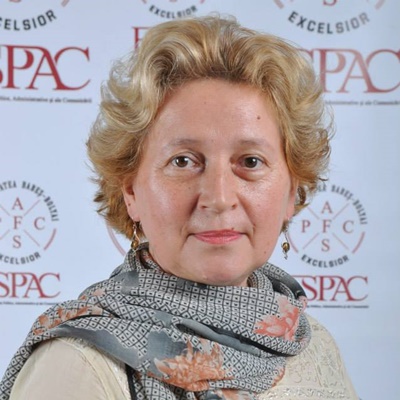
Professor Elena Abrudan is Director of the Department of Journalism and Digital Media since 2007, director of the BBU Media Center and vice president of the “Lucian Blaga” Cultural Society, member of the Romanian Writers Union, Cluj branch and of the Association of Journalism and Communication Trainers, Bucharest. Elena Abrudan brought to the students' attention innovative aspects by introducing new courses: Visual Communication, Symbolic Communication, Media Diversity and Visual Culture and offered an interdisciplinary openness in approaching traditional study disciplines: Media Culture, Cultural Journalism and Opinion Press.
The research applied in the production, distribution and analysis of visual media artifacts has found its expression in published works: books, studies in ISI or BDI indexed journals, in collective volumes published in national and international visual culture publishers. Visual experiences in the postmodern era, Cluj-Napoca, Eikon, 2013, Visual Culture. Concepts & Contexts , Cluj-Napoca, Guttenberg Galaxy, 2012; Visual communication. An interdisciplinary perspective, Accent, Cluj-Napoca, 2008 are author's books focused on image analysis and visual media production. Also worth mentioning are the projects made with colleagues and students, which resulted in the publishing of collective volumes, among which we mention Scriitori clujeni in dialog, Bucharest, Tritonic, 2017, Trends in Romanian Media Literacy, Cluj-Napoca, Accent, 2008; Valențe simbolice ale discursului publicitar. Între marketing și seducție (editor) Cluj-Napoca, Accent, 2007 and the multimedia volume Lucian Blaga. Imagine și cuvânt, (editor), Cluj Napoca, EIKON, 2013. (Details about the research and managerial activity of Elena Abrudan can be found in vol. Group portrait, Eikon, 2013).
Professor Abrudan holds numerous distinctions for teaching excellence and academic management, including the BBU Excellence Award (2010) for the Journalism in Romanian program. In 2011, the Journalism program at Babeș-Bolyai University occupied the first place, category A, following the ranking of study programs organized by accredited universities in the national education system.
Elena Abrudan collaborates in culture magazines, organizes and participates in photography and digital art exhibitions at the Writers' Summer Salon.
topics
> Visual practices in the Postmodern Era
bibliography
> New visual interfaces Design
> Cultural Diversity in the Journalistic Discourse
> Arts Journalism in the Digital Era
> Newspaper Design and new technologies
> Street Art in the New Media Era
> Visual Representations in Different Cultural Contexts
> Digital Art
> Social media and the Dynamics of Postmodern Identity
> Interactive storytelling in computer games
> Cinema and Fashion Industry
> Narrative Strategies in Documentary Films
> Semiotics in Audio-Visual Media
> Visual Rhetoric
> Culture and the Age of Consumption
> Cultural management
> Urban space and Cultural Reconversion -
Gabriel Bădescu
Prof. Gabriel Bădescu, Ph.D. | gabriel.badescu@ubbcluj.ro
political sciences
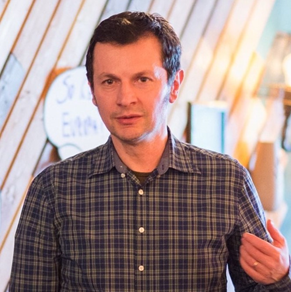
Gabriel Bădescu is a university professor of political science and director of the Center for the Study of Democracy at Babeș-Bolyai University in Cluj. His recent studies include topics of educational policy, democratization and civil society. He majored in social statistics at the University of Michigan, Ann Arbor, was a Fulbright Fellow at the University of Maryland, College Park, and a UNESCO Global Education Monitoring Report Fellow. His recent studies include topics of educational policies, democratization, social capital and civil society. Between 2009 and 2010 he coordinated the Agency for Government Strategies. He was a member of the National Council for Statistics and Prognosis of Higher Education, and is a member of the National Council for Scientific Research (CNCS), as well as the National Council for Attestation of University Degrees, Diplomas and Certificates (CNATDCU). He is a member of the Board of Directors of several foundations and associations, including the Cluj Community Foundation, the New Horizons Foundation and FDSC.
topics
> Education and democracy
> Civil society and political participation
> Educational and research policies
> Cultural diversity, economic inequality and socialization
> Social capital, widespread trust and democratization
> Environmental policies
-
Ramona Hosu
Assoc. prof. Ramona Hosu, Ph.D. | ramona.hosu@ubbcluj.ro
communication sciences
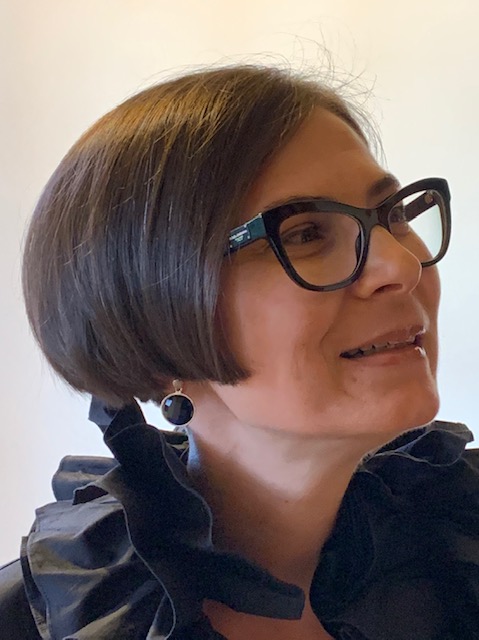
Ramona Hosu works in the Department of Journalism and Digital Media, FSPAC, BBU, Cluj-Napoca. She coordinates doctoral projects in Communication Sciences as a member of the Doctoral School of Political and Communication Sciences. She won a postdoctoral research grant in Human and Social Sciences/ Communication Studies. She holds a doctoral degree in Philology (American literature), a master’s degree in American Studies and a bachelor’s degree in Philology (English and Romanian language and literature). Her research directions center on the representation and the construction of cultural identities in media.
topics
> Communication, Media and Cultural Identity
bibliography
> Media, Representations and Social Reality
> Communication and Ideological Discourse
> The ‘Languages’ of Media: Building Sense Today
> Communication and Aesthetic Discourse
> Communication, Postmodernism and Digimodernism -
BORBÁLA KOVÁCS
Lect. Borbála Kovács, PhD | borbala.kovacs@ubbcluj.ro
political sciences
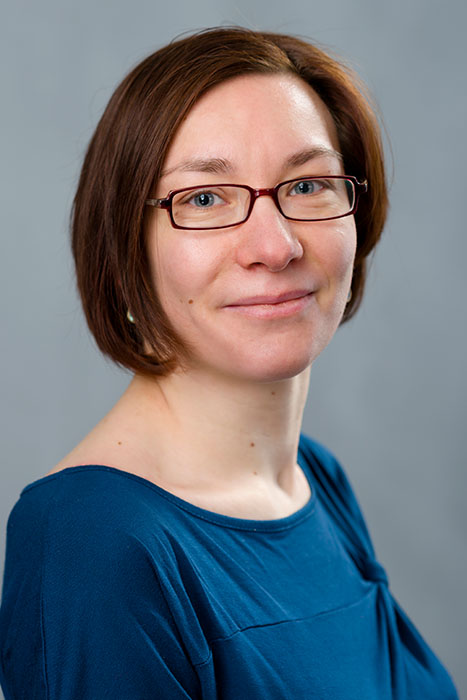
Borbála is a lecturer in the Department of Political Science. Before joining UBB, she was a postdoctoral researcher at Aarhus University (Denmark, 2018–2022) and taught at Central European University (Hungary, 2013–2018). She earned her PhD in Social Policy from the University of Oxford (UK) in 2013. Her research focuses on early childhood care, post-socialist family policies, informal social services, welfare regimes, post-socialist tax systems, and, more recently, trust and street-level bureaucracy in a comparative context. She has published in journals like Journal of European Social Policy, Social Policy and Society, Cambridge Journal of Regions, Economy and Society, and European Societies. Her monograph, Family Policy and the Organisation of Childcare, was published by Palgrave Macmillan in 2018.
-
Cosmin Marian
Prof. Cosmin Marian, Ph.D. | cosmin.marian@ubbcluj.ro
political sciences
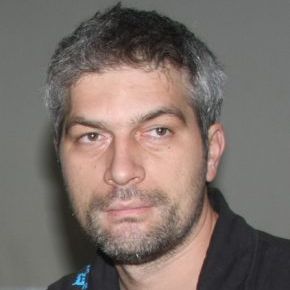
Cosmin Gabriel Marian is a pecialist in comparative politics, research methods and social data modeling. He is the author and co-author of a series of articles published in specialized journals, including: Electoral Studies, East European Politics and Societies, Communist and Post-Communist Studies, International Journal of the Commons, European Political Science, Journal of Contemporary Central and Eastern Europe.
topics
> Governance and governance in Romania
> Political parties
> Eectoral studies and voting behavior
> Analysis of the regime of common properties
> Public policies
-
Radu-Mihai Meza
Prof. Radu-Mihai Meza, Ph.D. | radu.meza@ubbcluj.ro
COMUNICATION SCIENCES
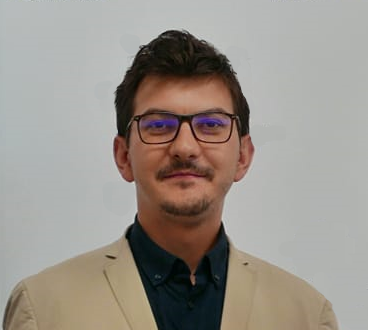
Radu Meza is part of the faculty at the Journalism and Digital Media Department since 2008. He graduated Computer Science and Journalism and holds a Ph.D. in Sociology with a thesis on the structure and dynamics of popular online networking systems. His research interests include media analysis, new digital media and computational methods in social sciences. In 2016 he became the coordinator of the first Digital Media Bachelor program in Romania. He is a member of the University Senate since 2012, and was elected Chair of the Committee for Curriculum for the 2020-2024 and 2024-2029 mandates. In 2021 he was elected Chair of the Journalism and Digital Media Department.
Topics
- >Hate speech, offensive speech, extreme speech, and emotionalization in public discourses on digital platforms
- >Media representations analysis incorporating machine learning approaches
- >Analysing media message diffusion using complex network analysis
- >Analyzing trends in public discourses using computational linguistics approaches
- >Analyzing ermergent media genres and communicator performance modes using formal concept analysis
- >Analyzing User experience analysis using mixed-methods approaches
- >Analyzing Digital Games & Interactive Narratives using mixed-methods approaches
bibliography -
ANDREEA MOGOȘ
Prof. Andreea Mogoș, Ph.D. | andreea.mogos@ubbcluj.ro
communication sciences

Andreea Mogoș, PhD, has been a member of the Department of Journalism since 1998. She is a graduate of the College of Political, Administrative and Communication Sciences, specializing in Journalism (1998) and the Faculty of Sociology and Social Work, specializing in Sociology (2001), both at Babeș-Bolyai University. She followed a master’s degree in Social Communication and Public Relations at the Faculty of Sociology and Social Work. She obtained, in 2009, the doctorate in Sociology at Babeș-Bolyai University with the thesis Social mediated realities: representations of Romanians in the French written press. She holds a PhD in Information and Communication Sciences from the Université Paris 8 - Vincennes Saint-Denis with a thesis entitled Réalités sociales médiatisées. Représentations des roumains dans la presse écrite française (2009). In 2016, she obtained the habilitation with the thesis of Traditional and new media representations. From a socially constructed reality to a filtered and quantified reality. Since 2004 she has been in charge of the Erasmus department, and since 2012 she has been Vice-Dean of the Faculty of Political, Administrative and Communication Sciences. Her favorite areas of research are media representations, the effects of media communication, and image analysis.
Eutopia cotutelle program
The EUTOPIA PhD co-tutelle program supports high-quality PhD projects in all research areas cosupervised by academics of the EUTOPIA member universities. It is expected to lead to high-quality research projects with global impact, providing exciting research opportunities for PhD students.
The competition for filling this position will take place during the September 2023 admissions session. (see details here).
Proposed topic: Media Exposure of Migrant Integration in the European Union
Information
PhD co-tutelle in Information and Communication Sciences
(Babes-Bolyai University and CY Cergy Paris University)
The overarching research project, which includes a PhD conducted through cotutelle, aims to bridge the gap between scientifically-based knowledge on climate change technologies and its translation into social issues through media circulation. This investigation will also explore the impact of this transformation on geopolitical and governance-related contexts.
Proposed topic: Analysis of the mediatization and science communication processes related to the climate change technologies
Information
topics
> Media representations in traditional media (print media, television) and new media
bibliography
> Mechanisms of representation and self-representation in the new media
> Content analysis and semiotics of visual representations (especially press photographs and data visualizations)
> Analysis of the production of visual media content (both in traditional and new media)
> Analysis of media effects on the public
-
CRISTINA NISTOR-BEURAN
Assoc. prof. Cristina Nistor-Beuran, Ph.D. | cristina.nistor@ubbcluj.ro
communication sciences
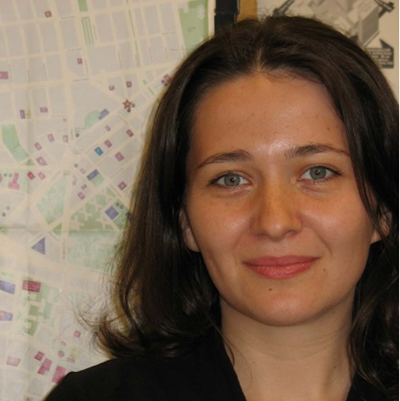
Cristina Nistor-Beuran, associate professor PhD, is a professor at the Department of Journalism and Digital Media of the College of Political, Administrative and Communication Sciences (FSPAC), since 2001, and the coordinator of the English journalism program, undergraduate level. In 2006-2012, she was the spokesperson of Babeș-Bolyai University. She obtained the doctorate in sociology at Babeș-Bolyai University; she graduated with a master's degree in Social Communication and Public Relations at the Faculty of Sociology and Social Work (UBB); she has a degree in journalism (UBB). She conducted research internships in the USA (during her doctoral studies), at the Arthur L. Carter Journalism Institute at New York University and at The Center on Organizational Innovation at Columbia University in New York; in Belgium, Brussels, at the Institut des Hautes Etudes des Communications Sociales (IHECS) and the Central Library of the European Commission; in Germany, at Ludwig Maximilians University in Munich, at the Institute of Communication and Media Sciences. Since 2007, she has been the didactic coordinator of the UBB RADIO ONLINE. He has participated in numerous conferences and collaborated in various projects in the field of communication and media sciences, with activities organized at universities or media institutions (in Romania, England, France, Spain, Latvia, Italy, the Netherlands), as well as at European institutions, in Brussels and Strasbourg. Among the European projects in which she participated in the local coordination team, we mention Swim in the Digital World (2008-2010), funded by the MEDIA program of the European Union, and the pan-European project EURANET, European Radio Network, funded by the European Commission (since 2009). Between 2003 and 2004, she was deputy editor-in-chief at CAMPUS UBB, Babeș-Bolyai University Magazine (content developed in Romanian, Hungarian, German, and English), and, between 1998 and 2001, she practiced radio journalism.
topics
> Emerging trends in the media industry
bibliography
> Innovation in digital media communication
> Models of integrating theory and practice in journalistic educational programs
> Adapting journalism study programs to the development of the communication industry
> Communication with the media - theoretical perspectives and professional practices
> Crisis communication management
> The emergence of European journalism and the media coverage of the European Union
> European Union communication strategies and policies
> The radio industry in the online era – production, broadcasting, and consumption of audio content
-
Ilie Rad
PROF. ILIE RAD, Ph.D. | ilie.rad@ubbcluj.ro
communication sciences
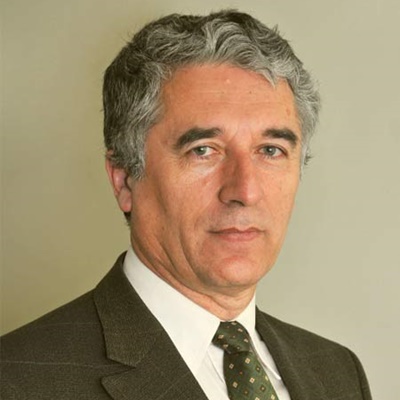
Ilie Rad, PhD, is a professor at the Department of Journalism and Digital Media (College of Political, Administrative and Communication Sciences), since 1995, which he led between 2001 and 2007. He obtained his doctorate in Philology, with a thesis about Aron Pumnul. He founded and led four publications: Excelsior, Reporter, Învățământul jurnalistic clujean, Anuarul Colegiului Studențesc de Performanță Academică, becoming director of the Romanian Journal of Press History (since no. 7, 2010). Collaborations with periodicals: Viața românească, România literară, Tribuna, Steaua, Apostrof, Contemporanul, Orizont, Familia, Ramuri, Acasă, Excelsior, Ateneu, Făclia, Ziua, Știrea, Tribuna Ardealuluietc.
Awards: The Writers' Union Award (2014), The Professional Journalists Union Award (2004, 2010), Babeș-Bolyai University Award (1999, 2007, 2016); the Professor Bologna award, granted by the National Alliance of Student Organizations in Romania (2011), the Perpessicius Award granted by the National Museum of Romanian Literature, for the Ion Agârbiceanu edition, etc.
Writings: Peregrin prin Europa. File de jurnal: Viena, Praga, Varșovia, Budapesta. Foreword by Constantin Ciopraga, member of the Romanian Academy, Bucharest, 1998; Memorialistica de război în cultura română, Timișoara, 1999; Stilistică și mass-media. Preface by prof. univ. dr. G. Gruiță, Cluj-Napoca, 1999; Aron Pumnul. Preface by V. Fanache, Cluj-Napoca, 2002; La un ceai cu Ștefan J. Fay, Iași, 2003; Geo Bogza. Rânduri către tineri scriitori ardeleni (Letters and telegrams sent by Geo Bogza to Teofil Răchițeanu, Ilie Rad and Viorel Mureșan, in 1973-1991); De la Moscova la New York – Road notes from the Russian Federation and fragments of the American diary. Preface by Mircea Popa, Cluj-Napoca, 2005; Învățământul jurnalistic clujean, Cluj-Napoca, 2006; Cum se scrie un text științific, Cluj-Napoca, 2008; Incursiuni în istoria presei scrise românești, Cluj-Napoca, 2009; De amicitia. Scrisori trimise de Ștefan J. Fay lui Ilie Rad (1988-2009) . Tribute volume on Ștefan J. Fay`s 90th anniversary. Preface by Irina Petraș, Cluj-Napoca, 2009; Un ardelean la București, Cluj-Napoca, 2011; Întâlnirile mele cu Iorgu Iordan. Scrisori și interviuri. With an argument by acad. Marius Sala, vice-president of the Romanian Academy, Cluj-Napoca, 2011; O călătorie în Țara Kangurului. Preface by Anamaria Beligan, Cluj-Napoca, 2012; Convorbiri cu Ion Brad, din primăvară până-n toamnă (aprilie-octombrie 2013), Cluj-Napoca, 2013; Copilăria ca luptă de clasă. Editors: Traian Călin Uba and Ilie Rad. Preface by Ana Blandiana, Bucharest, 2013; Ion Brad, Ilie Rad, Dialoguri epistolare săptămânale, din iarnă până-n vară, Cluj-Napoca, 2014; Mircea Zaciu – Octavian Șchiau, Correspondence (1956-2000), Cluj-Napoca, 2015; Mihai Beniuc, Însemnările unui om de rând. Pagini de jurnal și memorii (1965-1969; 1971; 1974). With an Argument by V. Fanache, Cluj-Napoca, 2016.
He initiated and organized fifteen national journalism symposiums, some with international participation, whose works he edited and / or prefaced.
Co-author of several collective volumes, published in Romania and abroad, author of prefaces and postscripts. Collaborator, with over a hundred articles, at the monumental Dictionary of Romanian writers (coordinated by M. Zaciu, M. Papahagi, and A. Sasu, vol. I-IV, 2001-2005), at the Essential Dictionary of Romanian Literature (2001), at the General Dictionary of Romanian Literature (vol. IV, 2004-2009), at the Encyclopedia of the World's Minorities (USA, 2005), at the Encyclopedia of the Developing World (USA, 2005, with an essay about the Republic of Moldova). He was involved in the organization of the ten national congresses of the Romanian Press History Association, of which he was president for two terms (2008-2016). He created the Ion Agârbiceanu edition, in the Fundamental Works collection, under the auspices of the Romanian Academy.Topics
> Echinox magazine monograph
> Memorial of the Great Union of 1918
> The Romanian press in the years of Romania's neutrality (1914-1916)
> History Writers' Union Cluj
> Figures of great publicists and journalists from Cluj (Lucian Blaga, Ion Agârbiceanu, Ion Clopoțel, Al. Ciura, and others)
> Monograph of some Romanian journalists and publicists (Ioan Grigorescu, Iustin Popfiu, Tiron Albani etc.)
> Media representations of an important event in Romania`s history (the act of August 23, 1944; nationalization, the end of agricultural cooperativization, withdrawal of the Red Army from Romania, etc.)
> The journalistic activity of some important Romanian writers (Mariu Preda, Eugen Barbu, Augustin Buzura etc.)
> History of the doctoral institution in Romania
> Romanian winners of the Herder Prize -
Tibori-Szabo Zoltan
Prof. Tibori-Szabo Zoltan, Ph.D. | zoltan.tibori@ubbcluj.ro
communication sciences
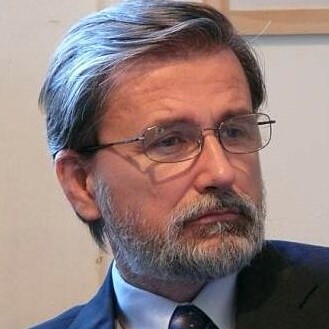
Zoltán TIBORI-SZABÓ (1957) is journalist, columnist, editor, scientific researcher, and university teacher. He studied history and journalism in Romania and in the United States, receiving his PhD from the Babeș-Bolyai University of Cluj, Romania, in 2007. Associated with the College of Political, Administrative and Communication Sciences of the Babeș-Bolyai University since 2002, he served first as senior scientific researcher, then as associate professor, and eventually as professor at this college. Between 1996 and 2014 he was for several periods of time fellow of The Freedom Forum Foundation, The American Society of News Editors, respectively of The Rosenthal Institute for Holocaust Studies of The City University of New York. In 2015, he was a Judith B. and Burton P. Resnick Invitational Scholar for the Study of Antisemitism at the U. S. Holocaust Memorial Museum in Washington, D. C. He has published extensively on the history of communism in Romania, the history of the Transylvanian press, the Hungarian-Romanian relationship, the history of the Holocaust and of the Jewish communities in Romania and Hungary. He is author of several books and studies dealing with the Hungarian and Transylvanian chapters of the Holocaust and the situation of the Central and Eastern European Jewry during the period following the tragedy, as well as co-editor and co-author with professor Randolph L. Braham of the Geographical Encyclopedia of Holocaust in Hungary (Hungarian edition 2007, English edition 2013) and the Geographical Encyclopedia of the Holocaust in Northern Transylvania (Hungarian edition 2008; Romanian edition, 2019). His book entitled Árnyékos oldal [Shady Side] deals with the identity crisis of the Transylvanian Jewry during the post-Holocaust period (Koinónia, Cluj, 2007). He authored a book on the fate of the Jewish high school of Kolozsvár and that of its students, entitled A kolozsvári Zsidó Gimnázium története (1940-1944). The History of the Jewish High School of Kolozsvár (1940-1944) (Editura Mega, Cluj, 2012). He is also the author of a book on the refuge and rescue of the Hungarian and East-Central European Jews during the Holocaust across the border between Hungary and Romania (Hungarian version: Élet és halál mezsgyéjén. Zsidók menekülése és mentése a magyar‒román határon 1940‒1944 között [Between Life and Death. The Refuge and Rescue of Jews Across the Hungarian-Romanian Border During 1940-1944], Minerva, Kolozsvár [Cluj], 2001; Romanian version: Frontiera dintre viață și moarte, Compania, Bucharest, 2005). He is a member of the Scientific Council of the Bucharest headquartered "Elie Wiesel" National Institute for the Study of the Holocaust in Romania, member of the board of the Romanian Cultural Institute, and also a member of the Romanian delegation to the International Holocaust Remembrance Alliance (IHRA).
topics
> History of the press and media organizations in Transylvania
> Management of media organizations
> Studies of press ethics and deontology
> Studies of the traditions and methodological aspects of investigative journalism
> Aspects of the Romanian and Hungarian political press
> Studies of nationalism and anti-Semitism
> Holocaust and genocide studies, coverage of these events in the press of the time, and research of their political dimensions